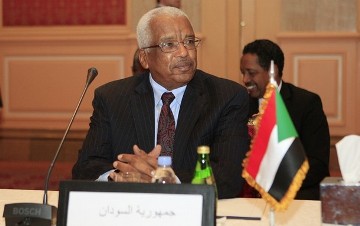Sudan central bank says no fix for sliding currency without addressing trade gap
December 16, 2012 (KHARTOUM) – The governor of Sudan’s central bank Mohamed Kheir al-Zubair acknowledged that the country will not be able to reverse the deterioration in the value of currency without fixing the underlying economic situation causing it.
 In a briefing before the Sudanese national assembly, Al-Zubeir said that the gap between imports and exports will continue to create pressures on the exchange rate.
In a briefing before the Sudanese national assembly, Al-Zubeir said that the gap between imports and exports will continue to create pressures on the exchange rate.
“Without plugging [the trade gap] the exchange rate will not stabilize,” the governor said.
The Sudanese pound has plunged to its lowest levels since a new currency was introduced last year and is now trading at 6.9 to the dollar in the black market. This is in sharp contrast to the official exchange rate of 4.4.
Several announcements by the central bank this year of Forex deposits from abroad have done little to stop the slide.
The secession of the oil-rich South Sudan last year has denied Sudan billions in revenue and hard currency making the central bank virtually unable to intervene and support the pound. Individuals and business alike complain that they cannot obtain enough foreign currency through official channels forcing them to head to the black market.
The government resorted to measures such as restricting the sale of hard currency and banning certain imports to preserve the Forex reserves.
But analysts and economic experts argue that the only long standing solution to the currency crisis is to boost exports in order to at least pay for imports.
Sudan has been trying to increase its production of gold and agricultural products, as well as the output from its remaining oilfields, to help offset the loss of southern oil. Sudan currently produces about 115,000 barrels of oil per day.
Al-Zubeir revealed that gold exports which reached $2 billion have enabled the government to pay for imports of basic commodities such as wheat, medicine and gasoline as well as defense and security.
He projected that the newly inaugurated gold refinery could export $5 billion worth of gold once it starts working at full capacity.
Sudan had expected to collect some revenue from South Sudan’s oil because the new nation is landlocked and was supposed to pay Khartoum to export crude through pipelines in the north. But Sudan insists that security issues must be resolved first before oil can start flowing again.
(ST)
